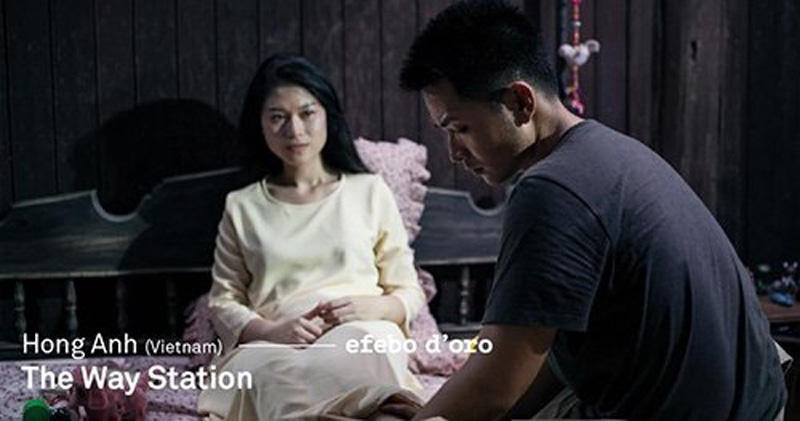
The film "Dao cua dan ngu cu” (or ‘The Way Station’) by director Hong Anh was honored on November 11, with the Efebo D’Oro Miglior film tratto da un libro (Best film based on a book) at the International Efebo d'Oro (Golden Efebo) Award’ award ceremony.

A scene from the film
"The Way Station”.
The International Efebo d’Oro Award, which is organised by
the Research Centre for Cinema and Narrative, was started in November 1978 to
counter the decline of cinema due to television. From its foundation to 2013,
the prize’s ceremony was hosted in the city of Agrigento, then it was moved to
Palermo, Italy.
Every year, the Efebo d’Oro awards a filmmaker for the best
film based on a literary work. The prize has also been officially recognized by
the Italian Ministry of Heritage and Culture.
Earlier, the film ‘The Way Station’ received eight
nominations at the ASEAN International Film Festival and Awards. It was also
honored with the "Best Film” Award, "Best Actor” for Pham Hong Phuoc and
"Best Director of Photography” for People’s Artists Ly Thai Dung at the ASEAN
International Film Festival & Awards (AIFFA Award) 2017 in Malaysia.
It was honoured with the Special Jury Prize at the Eurasia
International Film Festival 2017.
In addition, it also was screened on the Vietnam Night at
the 70th Cannes Film Festival and during a Vietnamese movie week in Spain, May
2017.
The movie is adapted from writer Do Phuoc Tien’s story
titled "Dao cua dan ngu cu” depicting the confusion and uncertainty of the
characters in their journey to look for happiness and the meaning of life.
Source: NDO
With an increasingly vibrant and widespread emulation movement aimed at building cultured residential areas and cultured families, Yen Thuy District has been making steady progress toward improving both the material and spiritual well-being of its people, while fostering a civilized, prosperous, beautiful, and progressive community.
Once lacking recreational spaces and community facilities, Residential Group 2 in Quynh Lam Ward (Hoa Binh City) has recently received attention for the construction of a new, spacious, and fully equipped cultural house. The project followed the model of state support combined with public contributions in both labor and funding.
The "All people unite to build cultural life" movement, which has been effectively integrated with Kim Boi district’s socio-economic development goals, is fostering a lively spirit of emulation across local residential areas, hamlets, villages, public agencies, and enterprises. In addition, through the initiative, traditional cultural values are being preserved and promoted, while community solidarity and mutual support in poverty reduction and economic development are being strengthened.
A working delegation of the Hoa Binh provincial People’s Committee led by its Permanent Vice Chairman Nguyen Van Toan on June 11 inspected the progress of a project to build the Mo Muong Cultural Heritage Conservation Space linked to tourism services in Hop Phong commune, Cao Phong district.
Born and growing in the heroic land of Muong Dong, Dinh Thi Kieu Dung, a resident in Bo town of Kim Boi district, in her childhood was nurtured by the sweet lullabies of her grandmother and mother. These melodies deeply imprinted on her soul, becoming an inseparable part of her love for her ethnic group's culture. For over 20 years, this love for her hometown has driven Dung to research, collect, and pass down the cultural values of the Muong people to future generations.
In the final days of May, the Ethnic Art Troupe of Hoa Binh Province organized performances to serve the people in remote, mountainous, and particularly disadvantaged areas within the province. These were not just ordinary artistic shows, but they were the meaningful journeys aimed at spreading cultural values, enhancing the spiritual life of the people and contributing to the preservation of ethnic minority cultural identities.



